Discover Stanford Legal
Stanford Legal

Stanford Legal
Author: Stanford Law School
Subscribed: 422Played: 4,066Subscribe
Share
© All rights reserved
Description
Law touches most aspects of life. Here to help make sense of it is the Stanford Legal podcast, where we look at the cases, questions, conflicts, and legal stories that
affect us all every day.
Pam Karlan studies and teaches a range of constitutional law-related courses with a special focus on what is known as the “law of democracy,”—the law that regulates voting, elections, and the political process. She served as a commissioner on the California Fair Political Practices Commission, an assistant counsel and cooperating attorney for the NAACP Legal Defense Fund, and (twice) as a Deputy Assistant Attorney General in the Civil Rights Division of the U.S. Department of Justice. She also co-directs the Stanford Supreme Court Litigation Clinic, which represents real clients before the highest court in the country, working on important cases including representing Edith Windsor in the landmark case striking down the federal Defense of Marriage Act and Donald Zarda in a case where the Supreme Court held that Title VII of the Civil Rights Act of 1964 protects LGBT individuals against discrimination in employment. She has argued before the Court ten times.
And Diego A. Zambrano who’s primary research and teaching interests lie in the areas of civil procedure, transnational litigation, and judicial federalism. His work explores the civil litigation landscape: the institutions, norms, and incentives that influence litigant and judicial behavior. He also has an interest in comparative constitutional law and legal developments related to Latin America. Professor Zambrano is the Associate Dean for Global Programs and faculty director of the Neukom Center for the Rule of Law. In 2021, Professor Zambrano received the Barbara Allen Babcock Award for Excellence in Teaching.
Law matters. We hope you’ll listen to new episodes that will drop on Thursdays every two weeks.
To learn more, go to https://law.stanford.edu/stanford-legal-podcast/.
affect us all every day.
Pam Karlan studies and teaches a range of constitutional law-related courses with a special focus on what is known as the “law of democracy,”—the law that regulates voting, elections, and the political process. She served as a commissioner on the California Fair Political Practices Commission, an assistant counsel and cooperating attorney for the NAACP Legal Defense Fund, and (twice) as a Deputy Assistant Attorney General in the Civil Rights Division of the U.S. Department of Justice. She also co-directs the Stanford Supreme Court Litigation Clinic, which represents real clients before the highest court in the country, working on important cases including representing Edith Windsor in the landmark case striking down the federal Defense of Marriage Act and Donald Zarda in a case where the Supreme Court held that Title VII of the Civil Rights Act of 1964 protects LGBT individuals against discrimination in employment. She has argued before the Court ten times.
And Diego A. Zambrano who’s primary research and teaching interests lie in the areas of civil procedure, transnational litigation, and judicial federalism. His work explores the civil litigation landscape: the institutions, norms, and incentives that influence litigant and judicial behavior. He also has an interest in comparative constitutional law and legal developments related to Latin America. Professor Zambrano is the Associate Dean for Global Programs and faculty director of the Neukom Center for the Rule of Law. In 2021, Professor Zambrano received the Barbara Allen Babcock Award for Excellence in Teaching.
Law matters. We hope you’ll listen to new episodes that will drop on Thursdays every two weeks.
To learn more, go to https://law.stanford.edu/stanford-legal-podcast/.
187 Episodes
Reverse
When President Trump declared a national emergency and imposed sweeping tariffs under the International Emergency Economic Powers Act (IEEPA), businesses challenged the move, arguing the president did not have authority under that statute to impose tariffs. The Supreme Court recently agreed.
On this episode of Stanford Legal, co-host Professor Pamela Karlan sits down with international trade expert Alan Sykes, professor of law and Warren Christopher Professor in the Practice of International Law and Diplomacy, to unpack the Court’s 6–3 decision. Sykes is a leading expert on the application of economics to legal problems and the author of the book The Law and Economics of International Trade Agreements.
At the heart of the case, Sykes explains, was the question of whether a statute that allows the president to “regulate importation” can be stretched to authorize taxes on imports. The majority said no, emphasizing that the Constitution assigns the taxing power to Congress, and that if Congress intended to hand that power over, it would have said so clearly. The conversation explores the statutory arguments, the role of the Major Questions Doctrine, and the unusual alignments among the justices.
But the ruling raises as many questions as it answers, Sykes notes. What happens to billions in tariffs already collected? Do international trade deals struck in the shadow of these tariffs still stand? And with other statutory tools available is this really the end of the tariff saga, or just the next chapter?
Links:
Alan O. Sykes >>> Stanford Law page
The Law and Economics of International Trade Agreements >>> Stanford Law page
Connect:
Episode Transcripts >>> Stanford Legal Podcast Website
Stanford Legal Podcast >>> LinkedIn Page
Rich Ford >>> Twitter/X
Pam Karlan >>> Stanford Law School Page
Diego Zambrano >>> Stanford Law School Page
Stanford Law School >>> Twitter/X
Stanford Lawyer Magazine >>> Twitter/X
(00:00:00) Tariffs and IEEPA
(00:10:53) Statutory text and the history of tariffs
(00:13:54) “Regulate importation” and the Major Questions Doctrine
(00:17:56) Liquidation Timing, finality, and the 314‑day rule
(00:19:11) The Court of International Trade
(00:29:53) From IEEPA to Section 122 and what’s next under Section 301 Hosted by Simplecast, an AdsWizz company. See pcm.adswizz.com for information about our collection and use of personal data for advertising.
The Environmental Protection Agency recently announced it was rescinding the 2009 endangerment finding, the legal foundation for federal regulation of greenhouse gases under the Clean Air Act. The administration has called the move the largest deregulatory action in U.S. history. What does it actually do? And what happens next?
On this episode of Stanford Legal, Professor Deborah Sivas, an expert in environmental law, joins co-host Pam Karlan to unpack the legal strategy behind the repeal, the role of recent Supreme Court decisions, and what’s likely to unfold in the courts. Among other ramifications, they also explore California’s authority to adopt its own, more aggressive emissions standards and what this latest move by the Trump administration signals for the future of federal climate regulation.
Links:
Deborah Sivas >>> Stanford Law page
Environmental Law Clinic >>> Stanford Law page
Connect:
Episode Transcripts >>> Stanford Legal Podcast Website
Stanford Legal Podcast >>> LinkedIn Page
Rich Ford >>> Twitter/X
Pam Karlan >>> Stanford Law School Page
Diego Zambrano >>> Stanford Law School Page
Stanford Law School >>> Twitter/X
Stanford Lawyer Magazine >>> Twitter/X
(00:00:00): The EPA’s rescission of the Greenhouse Gas Endangerment Finding
(00:06:43): Climate science consensus and legal strategy
(00:16:01): The litigation roadmap: process vs. substance
(00:29:53): Wind power on the cusp
(00:30:10): Solar economics and federal land authority Hosted by Simplecast, an AdsWizz company. See pcm.adswizz.com for information about our collection and use of personal data for advertising.
In a timely conversation about the ACLU’s massive docket of cases, Pam Karlan speaks with Anthony Romero, JD ’90, executive director of the ACLU, about the surge of civil rights and civil liberties battles facing the country right now.Romero discusses major pieces of litigation spanning immigration, free speech, voting rights, and government accountability. A key focus is the Supreme Court showdown over birthright citizenship, where the Trump administration is attempting to deny citizenship to certain children born in the U.S., a move Romero calls an attack on one of the core promises of the Fourteenth Amendment. They also explore what happens when the government pushes the boundaries of compliance with court rulings and what that means for the rule of law.Tune in for a compelling conversation about the cases that could help define the next chapter of civil liberties law in the United States.Links:Anthony Romero >>> ACLU pageConnect:Episode Transcripts >>> Stanford Legal Podcast WebsiteStanford Legal Podcast >>> LinkedIn PageRich Ford >>> Twitter/XPam Karlan >>> Stanford Law School PageDiego Zambrano >>> Stanford Law School PageStanford Law School >>> Twitter/XStanford Lawyer Magazine >>> Twitter/X(00:00) Introduction and ACLU’s Rapidly Expanding Docket(02:30) Small but Mighty—ACLU vs. Federal Power(07:00) Inside a Burgeoning Docket(11:30) Birthright Citizenship at the Supreme Court(16:00) Enforcement at Scale and the Rule of Law(21:00): An Inflection Point in Public Sentiment Hosted by Simplecast, an AdsWizz company. See pcm.adswizz.com for information about our collection and use of personal data for advertising.
In a world where confidence is rewarded and humility can feel like a liability, Stanford Law professor Robert MacCoun argues for something radical: fewer unwavering opinions, more critical reflection, and a better way to disagree. On Stanford Legal, MacCoun joins co-hosts Pamela Karlan and Diego Zambrano for a conversation about how “habits of mind” borrowed from science can help citizens, lawyers, and policymakers think more clearly and function more effectively in a pluralistic society.MacCoun is the James and Patricia Kowal Professor of Law at Stanford Law School, a professor by courtesy in Stanford’s Psychology Department, and the university’s senior associate vice provost for research. Trained as a social psychologist, his work sits at the intersection of law, science, and public policy, with decades of research on decision-making, bias, and the social dynamics that shape how evidence is interpreted. In the episode, he draws on his most recent book, Third Millennium Thinking: Creating Sense in a World of Nonsense, co-authored with Nobel Prize–winning physicist Saul Perlmutter and philosopher John Campbell, to explain why probabilistic thinking, intellectual humility, and what he calls an “opinion diet” are essential tools for modern civic life. Links:Robert MacCoun >>> Stanford Law pageThird Millennium Thinking >>> Stanford Law pageConnect:Episode Transcripts >>> Stanford Legal Podcast WebsiteStanford Legal Podcast >>> LinkedIn PageRich Ford >>> Twitter/XPam Karlan >>> Stanford Law School PageDiego Zambrano >>> Stanford Law School PageStanford Law School >>> Twitter/XStanford Lawyer Magazine >>> Twitter/X (00:00:00) Introduction and Noise vs. Bias(00:04:42) The Power of Probabilistic Thinking(00:12:20) Juries, Community Judgment, and Reasonable Doubt(00:13:23) Habits of Community(00:25:08) Motivation, Tools, and Decision Processes(00:26:14) When Evidence Won’t Settle It Hosted by Simplecast, an AdsWizz company. See pcm.adswizz.com for information about our collection and use of personal data for advertising.
Professor Kim Scheppele has spent much of her career watching democracies rise and fall. She went to Hungary in the early 1990s expecting to study democratic optimism after the fall of the Berlin Wall. Instead, decades later, she found herself documenting how constitutional democracy can be dismantled from the inside out.That experience frames a wide-ranging conversation on the latest episode of Stanford Legal, where host Professor Pam Karlan speaks with Scheppele, the Lawrence S. Rockefeller Professor of Sociology and International Affairs at Princeton and a visiting professor at Stanford Law School, about how democracies crumble, and why the United States is not exempt.Drawing on years of on-the-ground research in Hungary, Russia, and other countries, Scheppele explains a central shift in democratic collapse: it no longer arrives through overt rupture, but through elections followed by legal and constitutional maneuvering. Leaders campaign as democrats, win office, and then use technical changes to the law, including court rules, budgetary controls, and civil-service structures, to weaken checks and rig the system in their favor.The discussion turns to the United States, examining how party polarization, shifting institutional loyalties, and expanding claims of executive power have made familiar safeguards less reliable than many assumed.Links:Kim Scheppele >>> Stanford Law pageConnect:Episode Transcripts >>> Stanford Legal Podcast WebsiteStanford Legal Podcast >>> LinkedIn PageRich Ford >>> Twitter/XPam Karlan >>> Stanford Law School PageDiego Zambrano >>> Stanford Law School PageStanford Law School >>> Twitter/XStanford Lawyer Magazine >>> Twitter/X (00:00:00) Learning in Wartime: A scholar’s antidote to the “cataract of nonsense”(00:08:17) Patterns abroad and at home—are U.S. checks in danger?(00:15:04) Naming the playbook(00:32:07) More litigation—access, risk, and the pace of change(00:32:39) Restoring democracy through law Hosted by Simplecast, an AdsWizz company. See pcm.adswizz.com for information about our collection and use of personal data for advertising.
Can the United States arrest a foreign head of state by sending FBI agents—and military troops—into another country? On the latest episode of Stanford Legal, Professor Pam Karlan sits down with international law expert and Stanford Law lecturer Allen Weiner to discuss the recent extraction of Venezuela’s Nicolás Maduro. Their wide-ranging conversation focuses on the uneasy space where U.S. law collides with the constraints of international law.Weiner, a former U.S. State Department legal adviser and now director of several international law–and humanitarian-focused programs at Stanford Law School, explains how domestic legal theories advanced to justify Operation Absolute Resolve in contrast with the UN Charter’s ban on the use of force. He situates the episode in a longer arc of U.S. efforts to reconcile military action with international legal limits, including earlier debates over actions in Kosovo and Libya.The legal questions are substantial, but the stakes ultimately turn on precedent and norms: how U.S. actions are understood by other states, what they signal to rivals such as Russia and China, and whether the international system begins to resemble the logic captured in Thucydides’ Peloponnesian Wars—that “the strong do what they can and the weak suffer what they must.”Links:Allen Weiner >>> Stanford Law pageConnect:Episode Transcripts >>> Stanford Legal Podcast WebsiteStanford Legal Podcast >>> LinkedIn PageRich Ford >>> Twitter/XPam Karlan >>> Stanford Law School PageDiego Zambrano >>> Stanford Law School PageStanford Law School >>> Twitter/XStanford Lawyer Magazine >>> Twitter/X (00:00) Is a threat a use of force? (00:16:18) Pressure, coercion, and the non-intervention line (00:17:02) Venezuela policy and the specter of escalation (00:28:24) Law, power, and the South China Sea Hosted by Simplecast, an AdsWizz company. See pcm.adswizz.com for information about our collection and use of personal data for advertising.
What are the legal implications of the unprecedented mass pardoning of the January 6th rioters? What does it say about American rule of law? President Biden’s DOJ prosecuted nearly 1,600 of the January 6, 2021, rioters—many for acts of shocking violence against police and government offices. On January 20, newly sworn-in President Trump, in one of his first official acts, issued a sweeping grant of clemency to all of the rioters charged in connection with the attack on the Capitol attack. He pardoned most defendants and commuted the sentences of 14 members of the Proud Boys and Oath Keepers militia, most of whom had been convicted of seditious conspiracy. The response from some of these violent rioters since the pardons has been alarming.“The people who did this, they need to feel the heat. We need to find and put them behind bars for what they did,” said Enrique Tarrio, the former national Proud Boys leader, sentenced to a 22-year sentence on seditious conspiracy charges, on Alex Jones' podcast soon after his pardon. Our guests today are Stanford Law Professor Shirin Sinnar and former DOJ prosecutor Brendan Ballou.Sinnar’s scholarship, including a recent study of hate groups, focuses on the legal treatment of political violence, the procedural dimensions of civil rights litigation, and the role of institutions in protecting individual rights and democratic values in the national security contextBallou was a lawyer at the Department of Justice for five years. He resigned on January 23 soon after President Trump's pardons. In a New York Times opinion essay, he wrote: “For while some convicted rioters seem genuinely remorseful, and others appear simply ready to put politics behind them, many others are emboldened by the termination of what they see as unjust prosecutions. Freed by the president, they have never been more dangerous.” He graduated from Stanford Law in 2016.Links:Shirin Sinnar >>> Stanford Law pageNew York Times piece by Brendan Ballou >>> I Prosecuted the Capitol Rioters. They Have Never Been More Dangerous.Connect:Episode Transcripts >>> Stanford Legal Podcast WebsiteStanford Legal Podcast >>> LinkedIn PageRich Ford >>> Twitter/XPam Karlan >>> Stanford Law School PageStanford Law School >>> Twitter/XStanford Lawyer Magazine >>> Twitter/X(00:00:00) The January 6th Prosecutions and the Pardon Power(00:06:26) Rewriting History and the Threat of Political Violence (00:11:56) The Future of Political Violence in the U.S. (17:24) Addressing Militia Violence and Legal Gaps(21:37) State-Level Prosecutions and Risks of Expanding Criminal Laws(25:27) Pardons, Political Violence, and Historical Parallels Hosted by Simplecast, an AdsWizz company. See pcm.adswizz.com for information about our collection and use of personal data for advertising.
A coalition of privacy defenders led by Lex Lumina and the Electronic Frontier Foundation filed a lawsuit on February 11 asking a federal court to stop the U.S. Office of Personnel Management (OPM) from disclosing millions of Americans’ private, sensitive information to Elon Musk and his “Department of Government Efficiency” (DOGE). As the federal government is the nation’s largest employer, the records held by OPM represent one of the largest collections of sensitive personal data in the country.Is this a big deal? Should we care? Joining Pam today is Stanford Law Professor Mark Lemley, an expert in intellectual property, patent law, trademark law, antitrust, the law of robotics and AI, video game law, and remedies. Lemley is of counsel with the law firm Lex Lumina and closely involved in the DOGE case. In this episode, Lemley overviews urgent privacy concerns that led to this lawsuit, laws such as the Privacy Act, and legal next steps for this case. The conversation shifts to the current political landscape, highlighting the unprecedented influence of Silicon Valley, particularly under the Musk administration. Lemley contrasts the agile, authoritative management style of Silicon Valley billionaires with the traditionally slow-moving federal bureaucracy, raising concerns about legality and procedural adherence. The conversation also touches on the demise of the Chevron doctrine and the possible rise of an imperial presidency, drawing parallels between the Supreme Court's and the executive branch's power grabs—and how Lemley's 2022 paper, "The Imperial Supreme Court," predicted the Court's trend towards consolidating power. This episode offers a compelling examination of how technological and corporate ideologies are influencing American law.Links:Mark Lemley >>> Stanford Law page“The Imperial Supreme Court” >>> Stanford Law publication pageConnect:Episode Transcripts >>> Stanford Legal Podcast WebsiteStanford Legal Podcast >>> LinkedIn PageRich Ford >>> Twitter/XPam Karlan >>> Stanford Law School PageStanford Law School >>> Twitter/XStanford Lawyer Magazine >>> Twitter/X(00:00:00) The Rise of Executive Power(00:07:22) Concerns About Data Handling and Privacy(00:08:41) The Impact of Silicon Valley's Ethos on Government(00:14:01) The Musk Administration's Approach(00:18:01) The Role of the Supreme Court(00:24:43) Silicon Valley's Influence on Washington Hosted by Simplecast, an AdsWizz company. See pcm.adswizz.com for information about our collection and use of personal data for advertising.
When a single federal judge can freeze a president’s policy nationwide, it raises big questions about checks and balances and democratic accountability. That’s one reason nationwide injunctions have become central to some of today’s most consequential legal battles—and why the Supreme Court’s recent decision in Trump v. CASA matters.At a live recording, Stanford Legal host Diego Zambrano sat down with Professor Mila Sohoni, one of the country’s leading scholars on federal courts and administrative law, for a conversation that moved from President Trump’s day-one birthright-citizenship order to the Court’s ruling in CASA, including how lower courts are now navigating the decision’s new, but murky, constraints on nationwide injunctions.Sohoni breaks the protection these injunctions can offer when sweeping executive actions threaten millions, the risks of empowering individual judges to halt national policy, and the incentives for strategic forum shopping in a polarized era. She also explains how CASA reins in—but doesn’t eliminate—the nationwide injunction, leaving room for broad relief through class actions, universal vacatur, and “complete relief” findings. The discussion sheds light on how the legal landscape is shifting after CASA, and why nationwide injunctions continue to shape major clashes between the courts and the executive branch.Links:Mila Sohoni >>> Stanford Law page“The Puzzle of Procedural Originalism” >>> Stanford Law pageConnect:Episode Transcripts >>> Stanford Legal Podcast WebsiteStanford Legal Podcast >>> LinkedIn PageRich Ford >>> Twitter/XPam Karlan >>> Stanford Law School PageDiego Zambrano >>> Stanford Law School PageStanford Law School >>> Twitter/XStanford Lawyer Magazine >>> Twitter/X (00:00:00) The Scope of Nationwide Injunctions(00:12:01) Epistemic and Democratic Arguments Against Nationwide Injunctions(00:28:54) The CASA Decision(00:29:37) Legal Basis and Impact of Executive Orders(00:38:20) Conclusion and Audience Questions Hosted by Simplecast, an AdsWizz company. See pcm.adswizz.com for information about our collection and use of personal data for advertising.
Over a 35-year career at the Department of Justice, Jonathan Wroblewski, JD ’86, watched the country’s stance on criminal sentencing harden, soften, recalibrate, and shift again. One of his early cases at the DOJ, which involved a cross-burning in rural Georgia, sparked a fascination with sentencing policy that shaped the rest of his career. Today, he is one of the country’s leading experts on sentencing law and policy.In this episode of Stanford Legal, host Professor Pamela Karlan talks with Wroblewski about crime and punishment, including the evolution of modern sentencing policies. Wroblewski, who has been serving as a visiting instructor at Stanford Law teaching courses on sentencing and AI in criminal justice, also offers a look inside his long career at the DOJ, where Karlan also served two separate stints as a political appointee.The conversation moves between how crime waves shape public attitudes, why some sentencing reforms take hold while others stall, and what happens inside the DOJ when long-standing norms begin to erode. Wroblewski’s stories, drawn from decades of work across administrations, bring those shifts into sharper focus.Links:Jonathan Wroblewski >>> Stanford Law pageConnect:Episode Transcripts >>> Stanford Legal Podcast WebsiteStanford Legal Podcast >>> LinkedIn PageRich Ford >>> Twitter/XPam Karlan >>> Stanford Law School PageDiego Zambrano >>> Stanford Law School PageStanford Law School >>> Twitter/XStanford Lawyer Magazine >>> Twitter/X(00:00) Intro to Jonathan Wroblewski’s Career (05:01) Evolution of Sentencing Policies (15:01) Shifts in Sentencing Philosophies (25:01) Public Perception and Crime Rates (35:01) Future Perspectives for Fair and Effective Legal Practices Hosted by Simplecast, an AdsWizz company. See pcm.adswizz.com for information about our collection and use of personal data for advertising.
“The amount of chaos that’s been introduced into the federal health policy landscape is unprecedented,” says Michelle Mello, professor at Stanford Law School and the Stanford University School of Medicine.That turmoil, she explains, has left major gaps in expertise, trust, and leadership—and states are rushing to fill the void. In this episode of Stanford Legal, host Pamela S. Karlan talks with Mello about what this moment means for the future of science, public health, research, and the law.Mello describes how the hollowing out of career expertise at the U.S. Department of Health and Human Services has upended vaccine policy and research funding, forcing states into unfamiliar leadership roles. She and Karlan also unpack how shifting scientific guidance during the pandemic eroded public confidence, how politicized grant-making is reshaping the research ecosystem, and state governments’ growing role in creating what she calls a “shadow CDC.”Despite the turmoil, Mello points to a few bright spots: state-level experimentation could generate valuable evidence of what works and what does not, and there are reassuring signs from the lower courts, she says, which she believes are capable of separating law from politics.Earlier this year, Mello explored many of these themes in her JAMA Health Forum paper, “The Hard Road Ahead for State Public Health Departments.”Links:Michelle Mello >>> Stanford Law pageJAMA Health Forum paper >>> “The Hard Road Ahead for State Public Health DepartmentsConnect:Episode Transcripts >>> Stanford Legal Podcast WebsiteStanford Legal Podcast >>> LinkedIn PageRich Ford >>> Twitter/XPam Karlan >>> Stanford Law School PageDiego Zambrano >>> Stanford Law School PageStanford Law School >>> Twitter/XStanford Lawyer Magazine >>> Twitter/X (00:00:00) Health Policy and COVID-19 Vaccines(00:05:10) The Vaccine Rollout Challenges(00:10:25) Public Trust and Recommendations(00:16:40) The Role of the Vaccine Committee(00:23:55) NIH Grant Process Insight(00:29:43) MIT's Stance on NIH Compact Hosted by Simplecast, an AdsWizz company. See pcm.adswizz.com for information about our collection and use of personal data for advertising.
When the National Guard shows up in American cities, it’s usually after hurricanes, fires, or floods, not political fights. But recent federal deployments have changed the landscape and raised pressing questions about how far a president’s domestic military powers can go. In this episode of Stanford Legal, host Pam Karlan talks with Professor Bernadette Meyler about the growing use of the National Guard for domestic law enforcement and what it reveals about shifting boundaries of presidential power. Links:Bernadette Meyler >>> Stanford Law pageTheaters of Pardoning >>> Stanford Law publications pageConnect:Episode Transcripts >>> Stanford Legal Podcast WebsiteStanford Legal Podcast >>> LinkedIn PageRich Ford >>> Twitter/XPam Karlan >>> Stanford Law School PageDiego Zambrano >>> Stanford Law School PageStanford Law School >>> Twitter/XStanford Lawyer Magazine >>> Twitter/X(00:00:00) Overview of National Guard Deployment (00:06:01) Changes in Immigration Enforcement (00:13:01) Continuous Deployment and Monitoring Elections (00:18:01) Training and Law Enforcement Activities of National Guard (00:24:31) Presidential Powers and Constraints (00:29:38) Ninth Circuit Panel’s Decision and Future Prospects Hosted by Simplecast, an AdsWizz company. See pcm.adswizz.com for information about our collection and use of personal data for advertising.
When politics drives prosecutions, what happens to the rule of law? Are we in uncharted waters? Stanford Legal host Professor Pamela Karlan sits down with her colleague criminal justice expert Robert Weisberg to unpack the extraordinary federal indictments of former FBI director James Comey and New York Attorney General Letitia James—with more potentially on the way.Weisberg, the Edwin E. Huddleson, Jr. Professor of Law and co-director of the Stanford Criminal Justice Center, explains how grand jury indictments normally work, why these cases are unusual, and how selective and vindictive prosecution claims might play out when the evidence of political motivation is broadcast via Truth Social missives. Karlan and Weisberg also discuss how Justice Department norms separating the White House from individual charging decisions have been systematically broken—and why these indictments, built on shaky legal ground and thin narratives, could face serious procedural challenges.Links:Robert Weisberg >>> Stanford Law pageConnect:Episode Transcripts >>> Stanford Legal Podcast WebsiteStanford Legal Podcast >>> LinkedIn PageRich Ford >>> Twitter/XPam Karlan >>> Stanford Law School PageDiego Zambrano >>> Stanford Law School PageStanford Law School >>> Twitter/XStanford Lawyer Magazine >>> Twitter/X(00:00:00) Targeted Prosecutions (00:10:00) Understanding Selective vs. Vindictive Prosecution (00:20:00) Comey Indictment and Related Current Events (00:27:00) John Bolton’s Legal Troubles (00:34:00) Potential Challenges for Adam Schiff Hosted by Simplecast, an AdsWizz company. See pcm.adswizz.com for information about our collection and use of personal data for advertising.
In April, President Trump declared a national emergency and assumed the power to levy tariffs, introducing uncertainty into global trading by reneging on previously negotiated agreements. One of the attorneys representing the challengers to the president’s decree in Trump v. VOS is Stanford Law Professor Michael McConnell, a constitutional law expert and former Tenth Circuit judge. The case, which the U.S. Supreme Court has expedited, is set to have ramifications well beyond trade. As McConnell wrote in a recent New York Times op-ed: “The tariff litigation is shaping up as the biggest separation-of-powers controversy since the steel seizure case in 1952…Understandably, most of the commentary has focused on the practical ramifications for the president’s trade negotiations and the American economy. But the cases may be even more important for the future of a fundamental component of the Constitution’s architecture: the separation of powers, intended by the founders to prevent any of the government’s three branches from becoming all powerful.” McConnell joins Pam Karlan and Diego Zambrano for a discussion about this important case, exploring whether presidents have the authority to tax through tariffs without clear congressional approval, the historical and constitutional roots of "no taxation without representation," and the seismic ramifications of a redefinition of the limits of executive economic power.Links:Michael McConnell >>> Stanford Law pageConnect:Episode Transcripts >>> Stanford Legal Podcast WebsiteStanford Legal Podcast >>> LinkedIn PagePam Karlan >>> Stanford Law School PageDiego Zambrano >>> Stanford Law School PageStanford Law School >>> Twitter/XStanford Lawyer Magazine >>> Twitter/X Hosted by Simplecast, an AdsWizz company. See pcm.adswizz.com for information about our collection and use of personal data for advertising.
Frequent mass shootings are a distinctly American problem, with news of another tragic shooting grabbing our attention every few weeks. Yet policy change is stalled.In this episode, we focus on an important reason for the congressional paralysis—the gun lobby. John Donohue, one of the country’s leading experts on the empirical study of law and public policy, and Eric Baldwin, a research fellow at Stanford Law, join us for a discussion about their new research paper, "Another Shooting, Another Contribution From the Gun Lobby." They reveal how both gun rights and gun safety PACs flood competitive districts with donations in the wake of deadly shootings. The result? A high-stakes stalemate that helps preserve the status quo, despite overwhelming public support for measures like universal background checks. With Donohue’s decades of scholarship on crime and policy and Baldwin’s insights into political science and lobbying, the episode offers a timely look at how money and ideology shape one of the country's most polarizing debates and offers an examination of a grim reality: mass shootings have become more frequent, but meaningful reform rarely follows. Against the backdrop of rising political violence, the conversation probes the sometimes-surprising role of campaign donations and interest-group maneuvering in shaping what legislators do—or fail to do—after mass shooting tragedy.Links:John Donohue >>> Stanford Law pageEric Baldwin >>> Stanford Law pageTakuma Iwasaki >>> Stanford Law page“Financial Firepower: School Shootings and the Strategic Contributions of Pro-Gun Pacs” >>> Stanford Law pageConnect:Episode Transcripts >>> Stanford Legal Podcast WebsiteStanford Legal Podcast >>> LinkedIn PageRich Ford >>> Twitter/XPam Karlan >>> Stanford Law School PageDiego Zambrano >>> Stanford Law School PageStanford Law School >>> Twitter/XStanford Lawyer Magazine >>> Twitter/X(00:00) Introductions and The Role of Different Gun Lobby Groups(10:01) Impact of Mass Shootings on Public Discourse (18:01) Political Reactions and Misinformation (25:01) Empirical Findings and Study Insights (30:01) Potential Changes in Public and Political Attitudes Towards Gun Violence Hosted by Simplecast, an AdsWizz company. See pcm.adswizz.com for information about our collection and use of personal data for advertising.
In this episode of Stanford Legal, host Professor Pamela Karlan interviews her Stanford Law School colleague Professor Lisa Larrimore Ouellette about actions by the Trump administration that Ouellette says are undermining scientific research and jeopardizing America’s longstanding global leadership in medicine and innovation. Drawing on an essay she penned for Just Security, Ouellette explains how decades of bipartisan support for federally funded science—an engine of American innovation since World War II—is now at risk. From canceling grants already approved through peer review, to capping essential “indirect cost” reimbursements, she details how these moves threaten not just labs and universities but also patients, whose clinical trials are being abruptly halted. Ouellette also highlights a second front in her current scholarship: how drug development policy can be better aligned with public health needs. As a member of a National Academies committee, she recently co-authored a report showing that both private investment and federal funding often fail to prioritize diseases causing the greatest suffering. Links:Lisa Larrimore Ouellette >>> Stanford Law pageThe Trump Administration’s Multi-Front Assault on Federal Research Funding >>> Just Security pageStanford Law’s Lisa Ouellette Helps Shape New Report on Drug Development Reform >>> Stanford Lawyer online featureConnect:Episode Transcripts >>> Stanford Legal Podcast WebsiteStanford Legal Podcast >>> LinkedIn PageRich Ford >>> Twitter/XPam Karlan >>> Stanford Law School PageStanford Law School >>> Twitter/XStanford Lawyer Magazine >>> Twitter/X(00:00) Research Funding (05:01) The Competitive Grant Process (15:01) Addressing Disease Burden (20:00) Impacts of Stopped Clinical Trials (25:01) The Role of Federal Investment in Innovation Hosted by Simplecast, an AdsWizz company. See pcm.adswizz.com for information about our collection and use of personal data for advertising.
At the urging of President Trump, the Texas legislature has launched a mid‑decade redistricting effort aimed at securing additional Republican seats in Congress. If successful, this effort could have far‑reaching implications for representation and governance—and spur other states to try the same. In this episode of Stanford Legal, two of Stanford Law School’s—and the nation’s—leading election law experts sit down to untangle the legal and political stakes of today’s redistricting wars. In their wide‑ranging discussion, Professors Pamela Karlan and Nathaniel Persily shed light on Texas’s push to add five new Republican‑leaning seats, the Supreme Court’s recent decision to re‑argue Louisiana v. Callais—a move that could reshape how the Voting Rights Act is applied—and the broader battles over race, representation, and the future of redistricting in America.Links:Nate Persily >>> Stanford Law pageConnect:Episode Transcripts >>> Stanford Legal Podcast WebsiteStanford Legal Podcast >>> LinkedIn PageRich Ford >>> Twitter/XPam Karlan >>> Stanford Law School PageStanford Law School >>> Twitter/XStanford Lawyer Magazine >>> Twitter/X(00:00) Voting Rights and Gerrymandering (05:31)The Legal Landscape of Redistricting(15:01) The Impact of Partisan Gerrymandering (25:31) The Evolving Role of the Judiciary (35:01) Future Implications for the Voting Rights Act Hosted by Simplecast, an AdsWizz company. See pcm.adswizz.com for information about our collection and use of personal data for advertising.
Trump-era executive orders, police hiring standards, and college admissions all converge in a decades-long debate over disparate impact, one of the most misunderstood yet consequential doctrines in civil rights law. In this episode of Stanford Legal, Professor Ralph Richard Banks, faculty director of the Stanford Center for Racial Justice, joins host Professor Pamela Karlan for a deep dive into how the disparate impact doctrine really works, why it matters, and what’s at stake when it’s attacked in the name of “meritocracy.” From the landmark Griggs case to modern college admissions, Banks dissects the arguments on all sides—showing how this sometimes-vilified legal doctrine not only helps root out discrimination, but can also strengthen, rather than undermine, meritocracy. Links:Rick Banks >>> Stanford Law pageConnect:Episode Transcripts >>> Stanford Legal Podcast WebsiteStanford Legal Podcast >>> LinkedIn PageRich Ford >>> Twitter/XPam Karlan >>> Stanford Law School PageStanford Law School >>> Twitter/XStanford Lawyer Magazine >>> Twitter/X(00:00:00) Introduction to Executive Orders and Disparate Impact (00:03:30) The Function and Impact of Universities in Society (00:09:46) Understanding Different Measures of Merit (00:13:20) Legacy Preferences and Nepotistic Systems (00:18:16) Disparate Impact in Standardized Testing (00:23:38) The Future of College Admissions and Rick Banks' Upcoming Book Hosted by Simplecast, an AdsWizz company. See pcm.adswizz.com for information about our collection and use of personal data for advertising.
In this episode of Stanford Legal, Professor Pam Karlan talks about the growing politicization of the Department of Justice under the Trump administration. Drawing on her experience in the DOJ’s Civil Rights Division during both the Obama and Biden administrations, Karlan describes how recent loyalty tests, internal purges, and retaliatory transfers have hollowed out one of the nation’s most critical legal institutions. Karlan explores how the DOJ has historically relied on a “thin layer” of political leadership atop a deep bench of expert, nonpartisan career lawyers—and why that structure is now under threat. She also discusses the DOJ’s broad civil rights mandate, the challenges of a politicized environment, and the legal and moral consequences of eroding prosecutorial independence. The conversation makes the case that what’s happening now is not just a policy shift—it’s an institutional crisis that threatens the rule of law and the very idea of justice in America. Links:Neukom Center for the Rule of Law >>> Stanford Law pageConnect:Episode Transcripts >>> Stanford Legal Podcast WebsiteStanford Legal Podcast >>> LinkedIn PageRich Ford >>> Twitter/XPam Karlan >>> Stanford Law School PageStanford Law School >>> Twitter/XStanford Lawyer Magazine >>> Twitter/X(00:00:00) Introduction and Constraints Under Civil Service Reform Act(00:05:01) The Impact of Political Agenda on DOJ's Functioning(00:08:31) Challenges Faced by Career Lawyers(00:14:16) Interaction Between Political Appointees and Career Lawyers(00:17:46) Meritocracy and Recruitment in the DOJ(00:20:01) comparative perspective in understanding the DOJ's special role Hosted by Simplecast, an AdsWizz company. See pcm.adswizz.com for information about our collection and use of personal data for advertising.
Amid escalating federal pressure on universities, Stanford Law School alum Greg Lukianoff, JD ’00, joins host Professor Pam Karlan for a sharp look at the free speech firestorms engulfing universities like Harvard and Columbia. First Amendment champion, president of the Foundation for Individual Rights and Expression (FIRE), and co-author of The Coddling of the American Mind, Lukianoff recently penned an essay for The Atlantic titled “Trump’s Attacks Threaten Much More Than Harvard.” In this episode, Lukianoff expands on his essay, breaking down the Trump administration’s tactics to punish elite institutions, from defunding threats and faculty interference to student visa crackdowns, while also calling out universities themselves for stifling dissent and eroding public trust in higher education.Links:Greg Lukianoff >>> FIRE pageThe Canceling of the American Mind >>> web pageThe Coddling of the American Mind >>> web page“Trump’s Attacks Threaten Much More Than Harvard” >>> The Atlantic pageConnect:Episode Transcripts >>> Stanford Legal Podcast WebsiteStanford Legal Podcast >>> LinkedIn PageRich Ford >>> Twitter/XPam Karlan >>> Stanford Law School PageStanford Law School >>> Twitter/XStanford Lawyer Magazine >>> Twitter/X(00:00:00) Introduction of Greg Lukianoff(00:05:01) Free Speech and Academic Freedom(00:10:01) Challenges to Free Speech(00:15:01) Legal Cases and Free Speech(00:20:01) Free Speech and the Government (00:30:01) Future of Free Speech Hosted by Simplecast, an AdsWizz company. See pcm.adswizz.com for information about our collection and use of personal data for advertising.


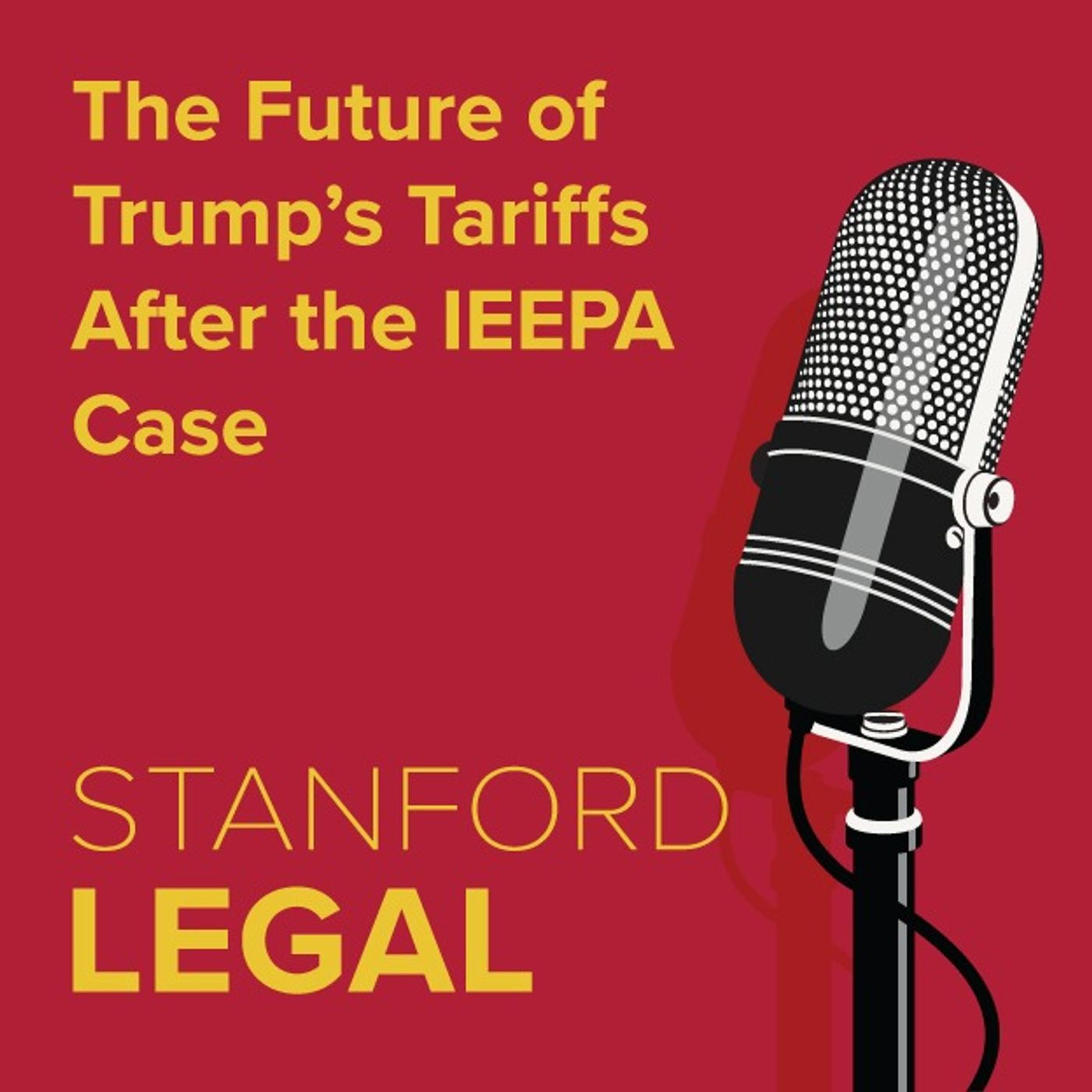
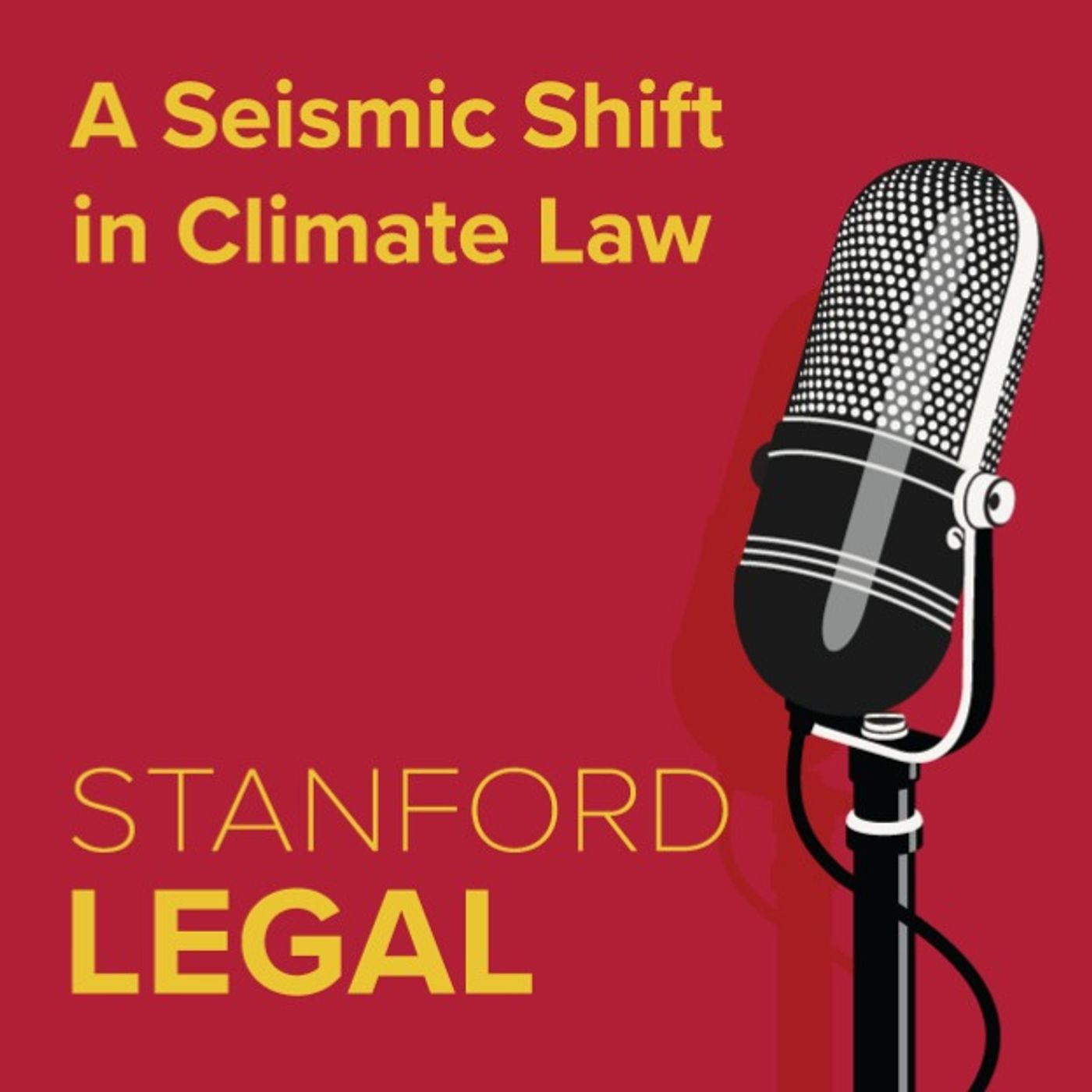
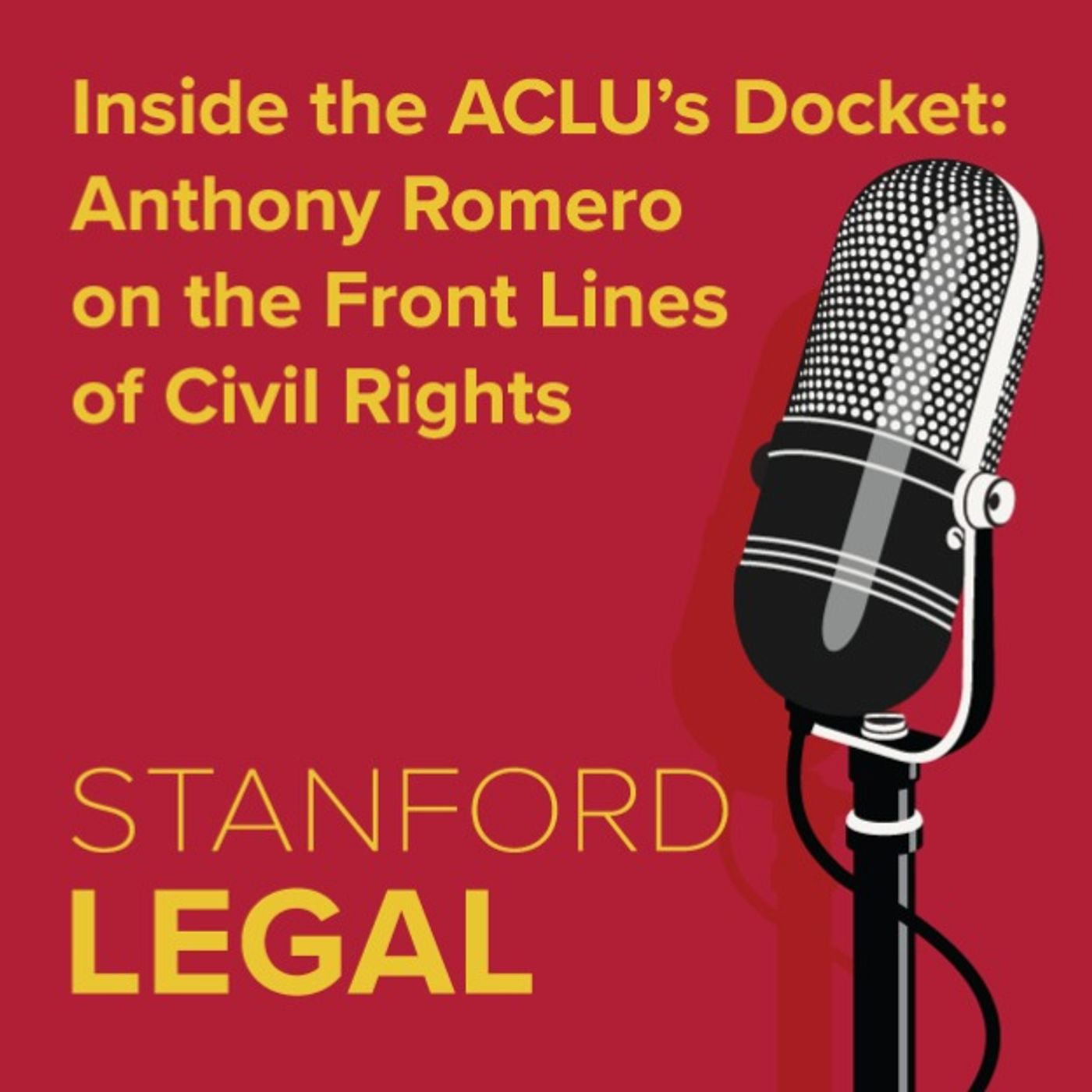
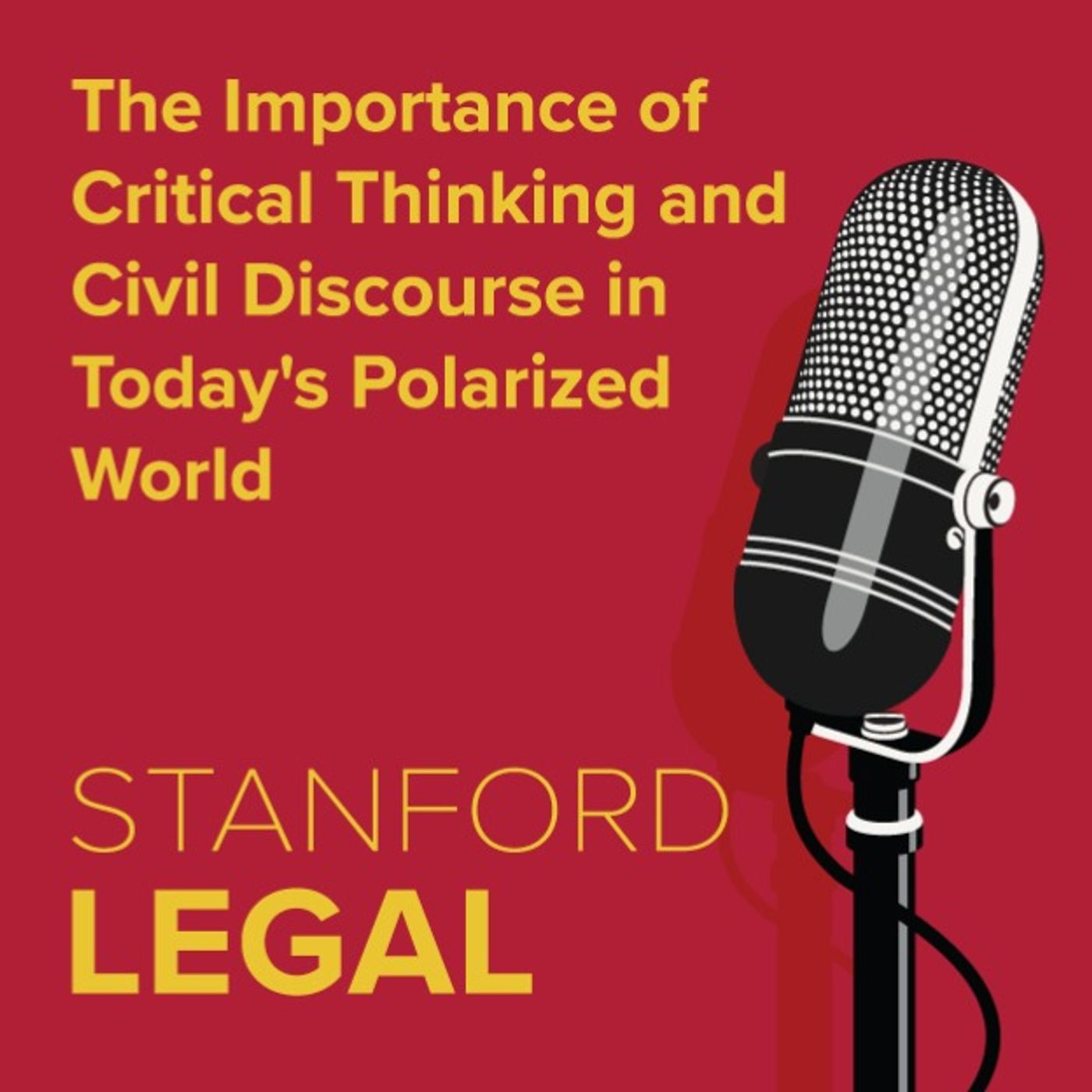
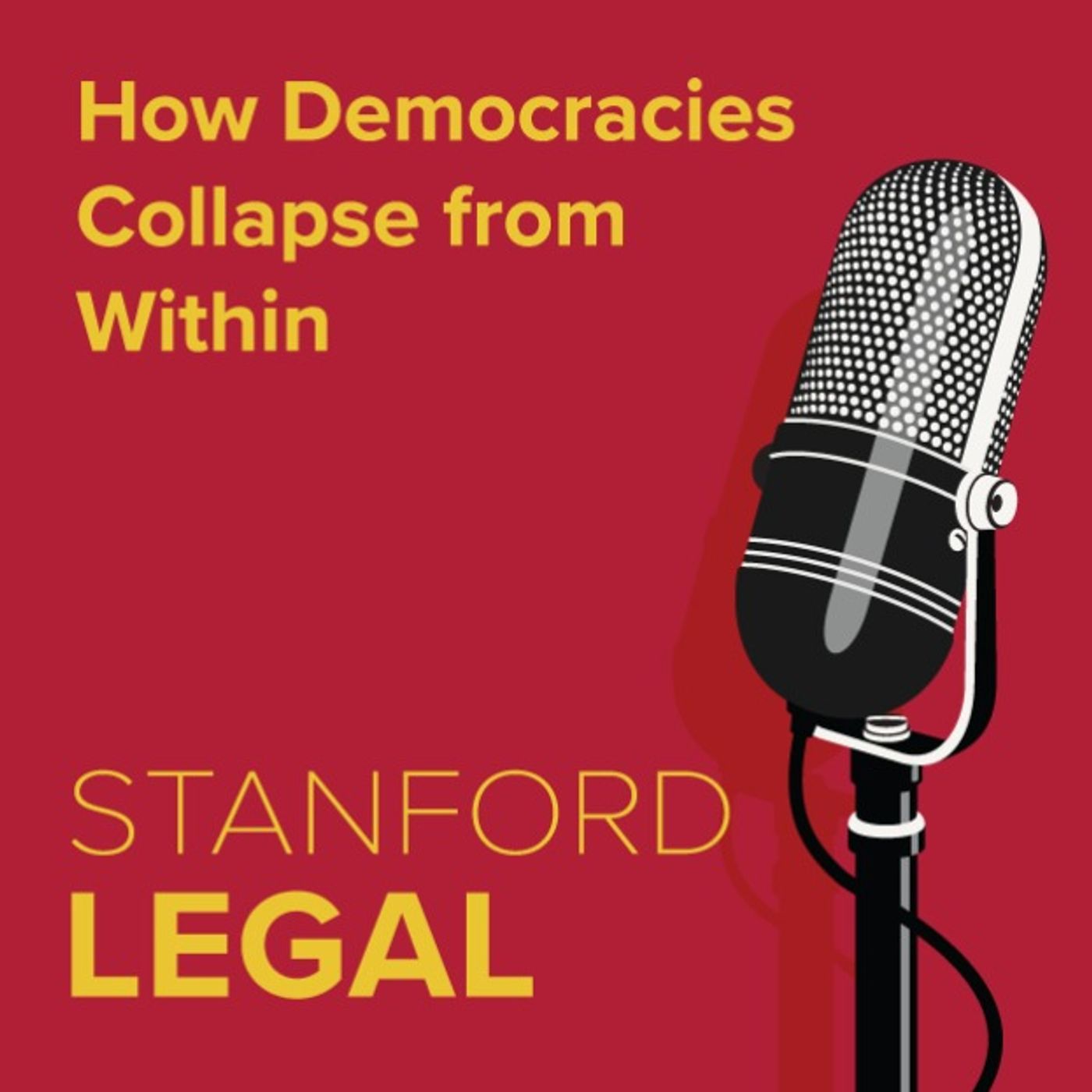
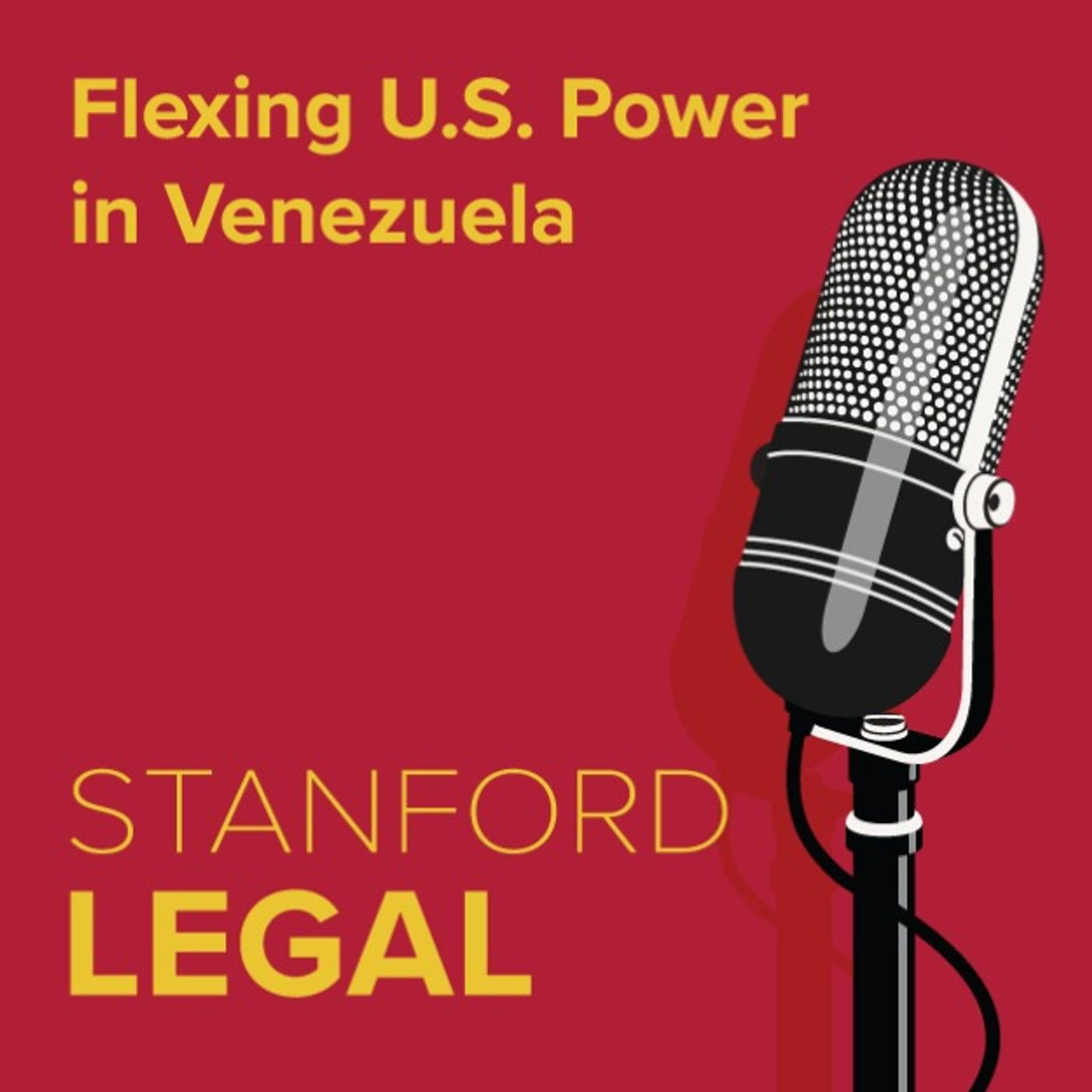


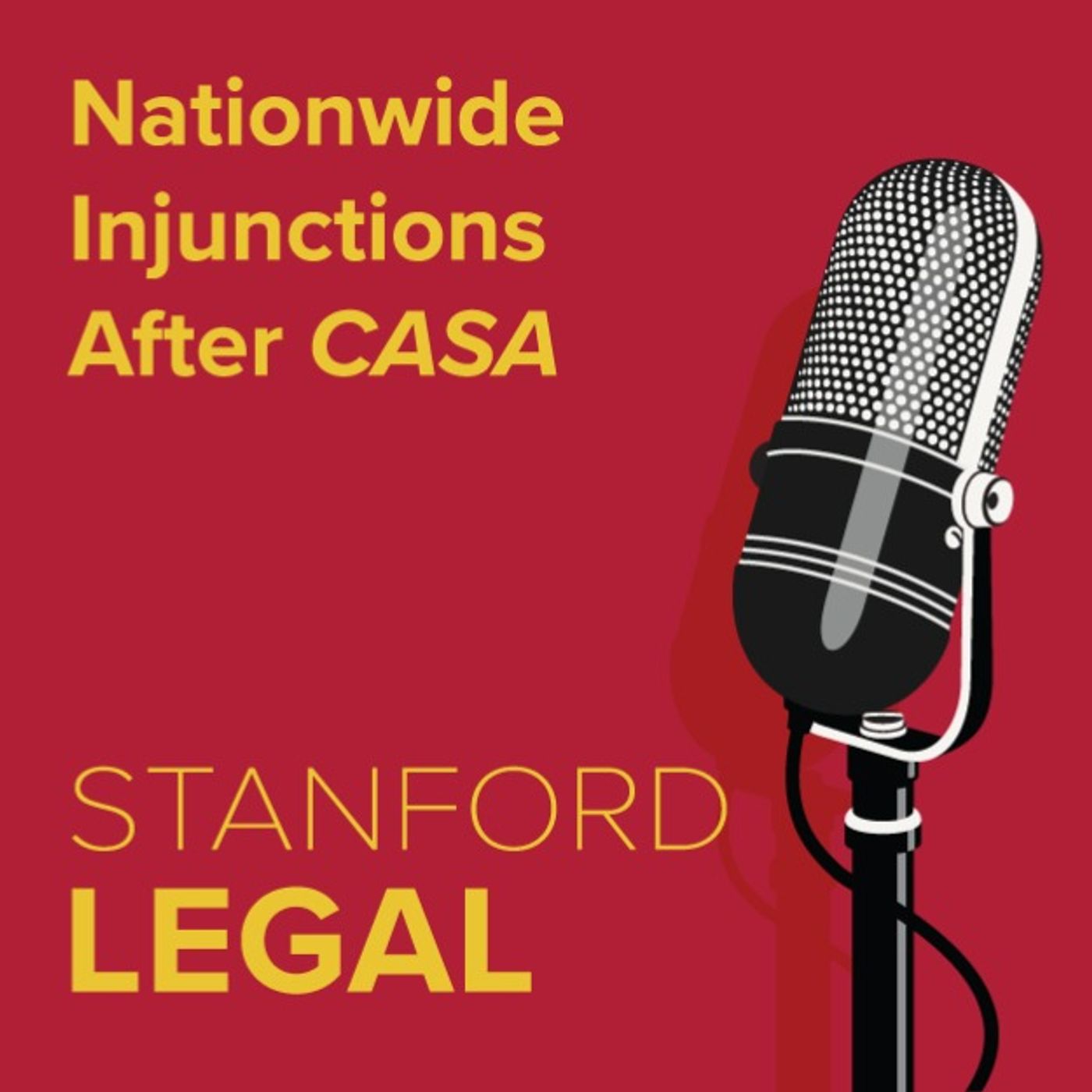
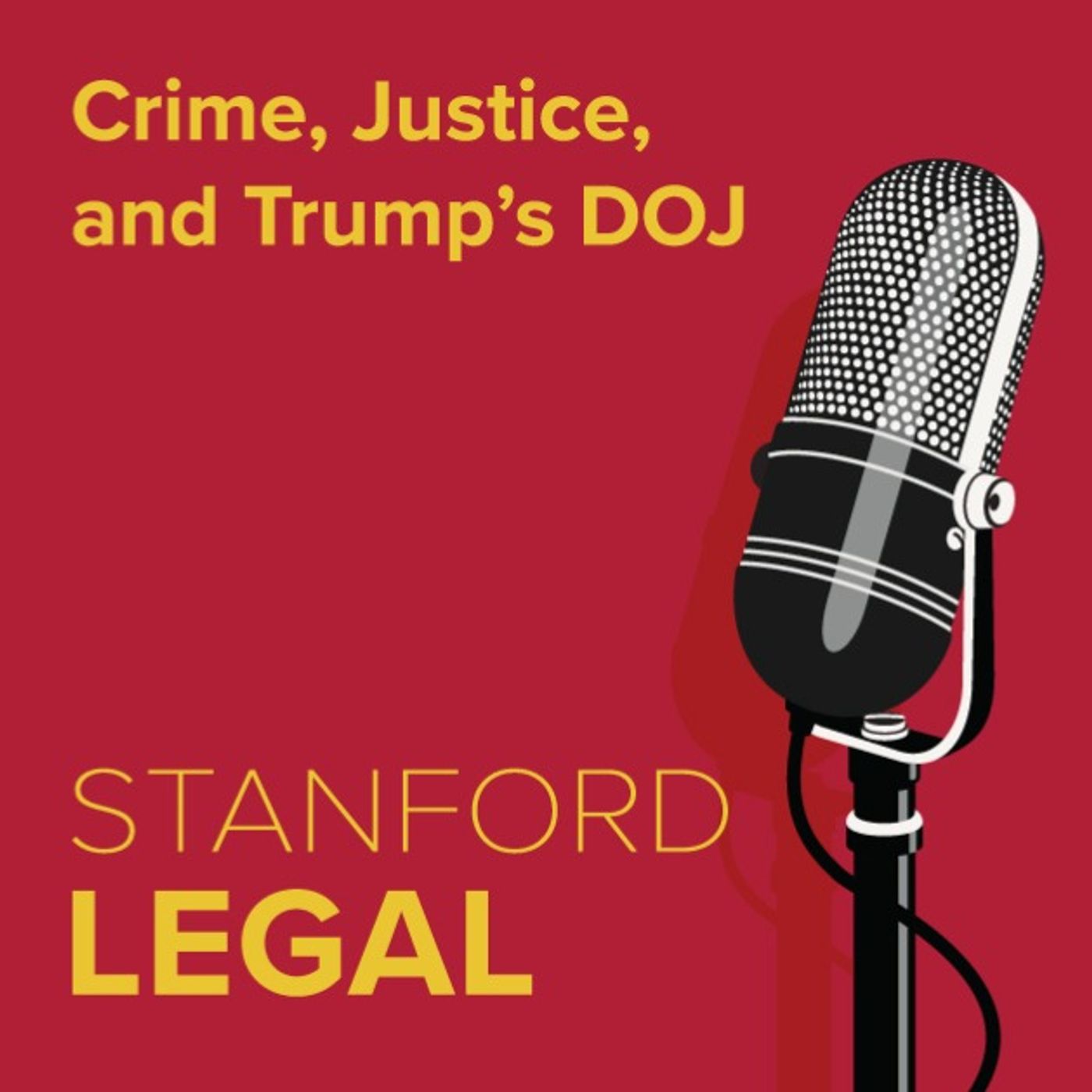
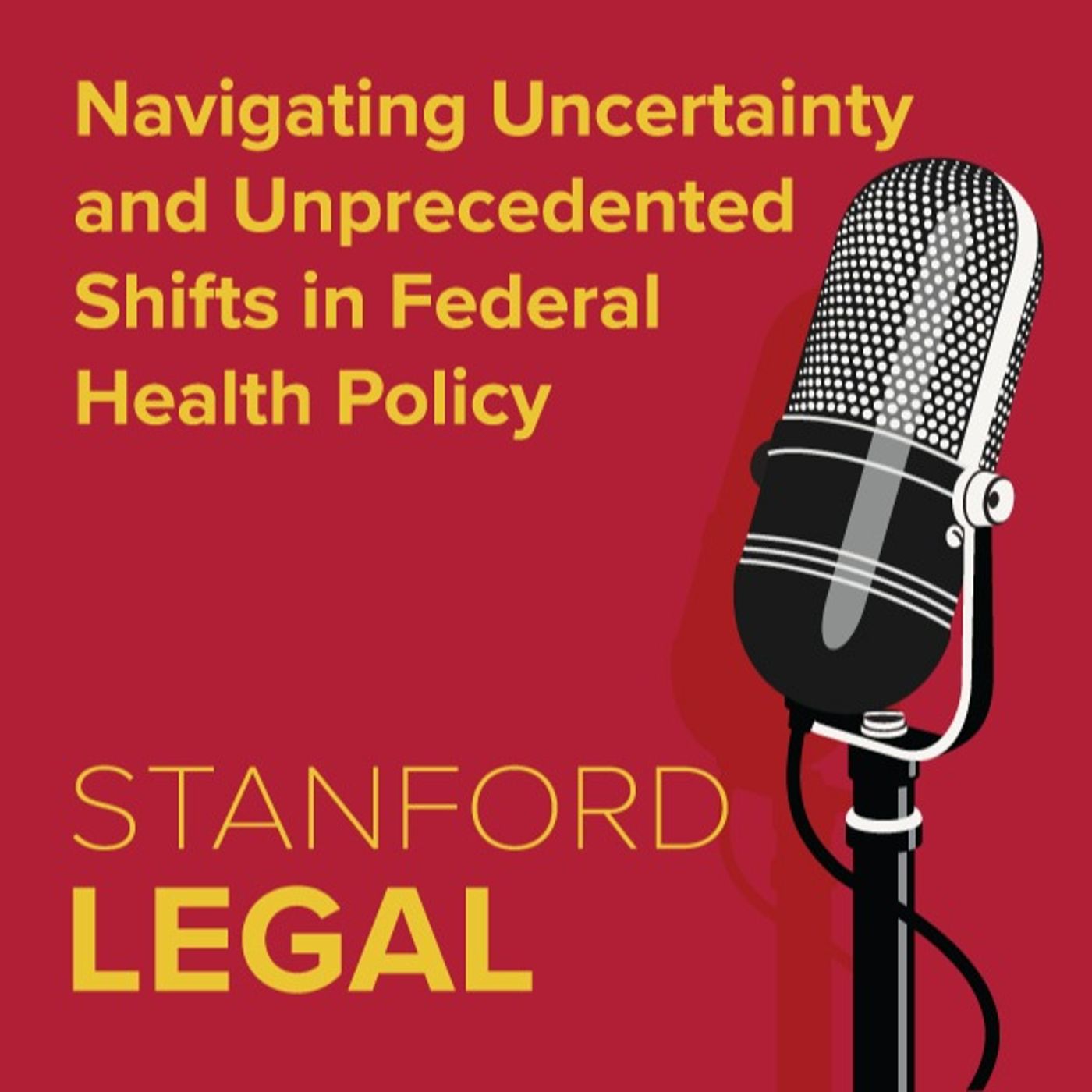
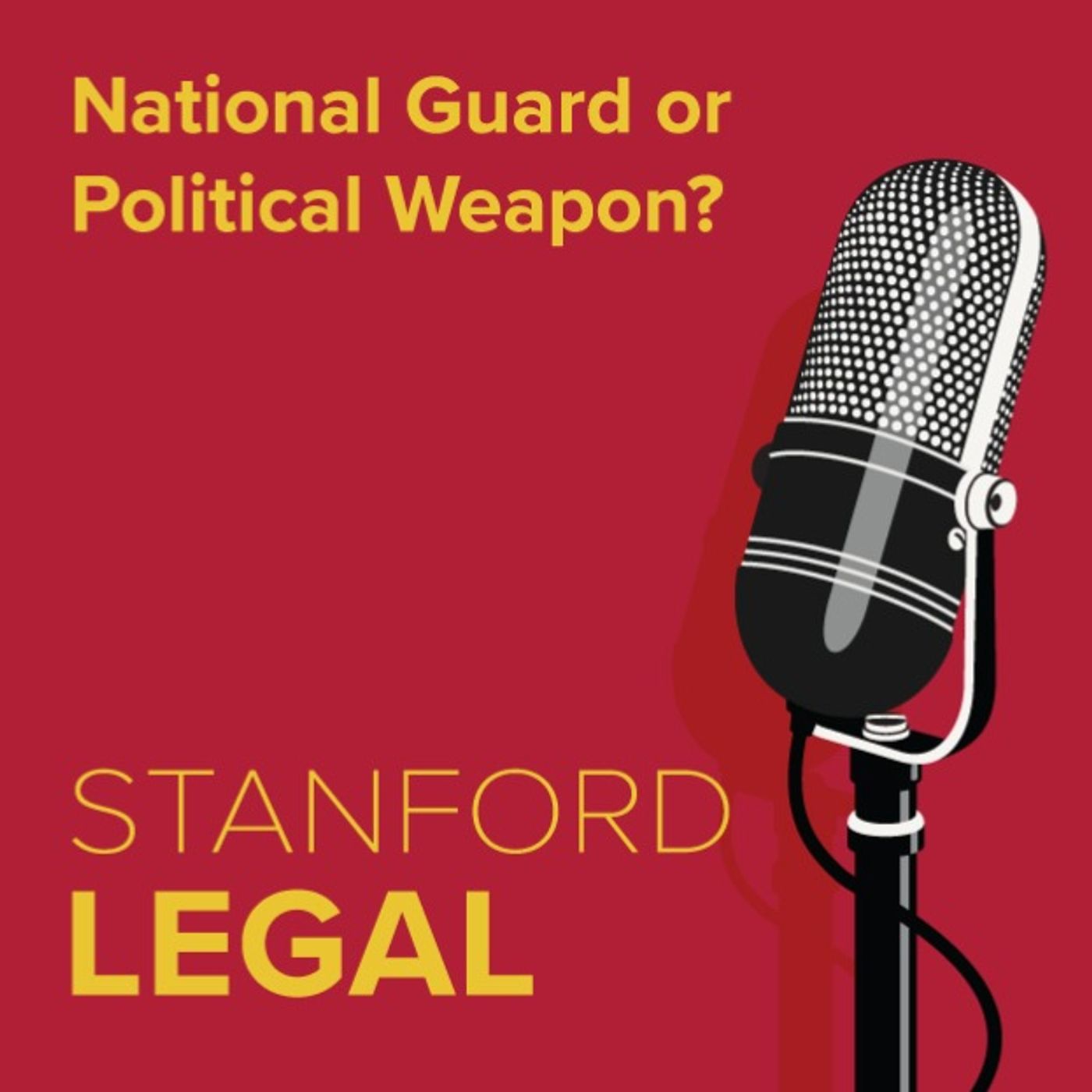
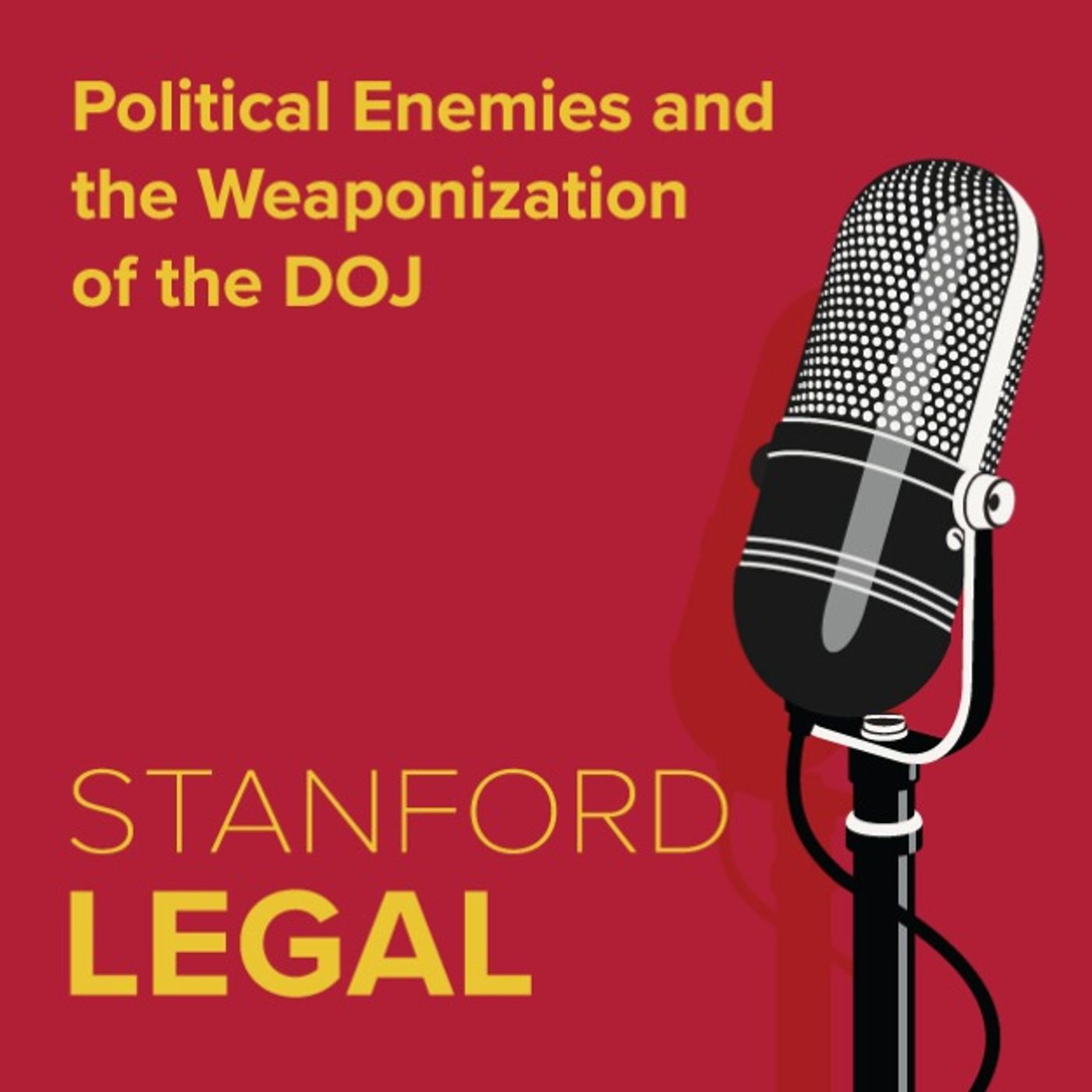

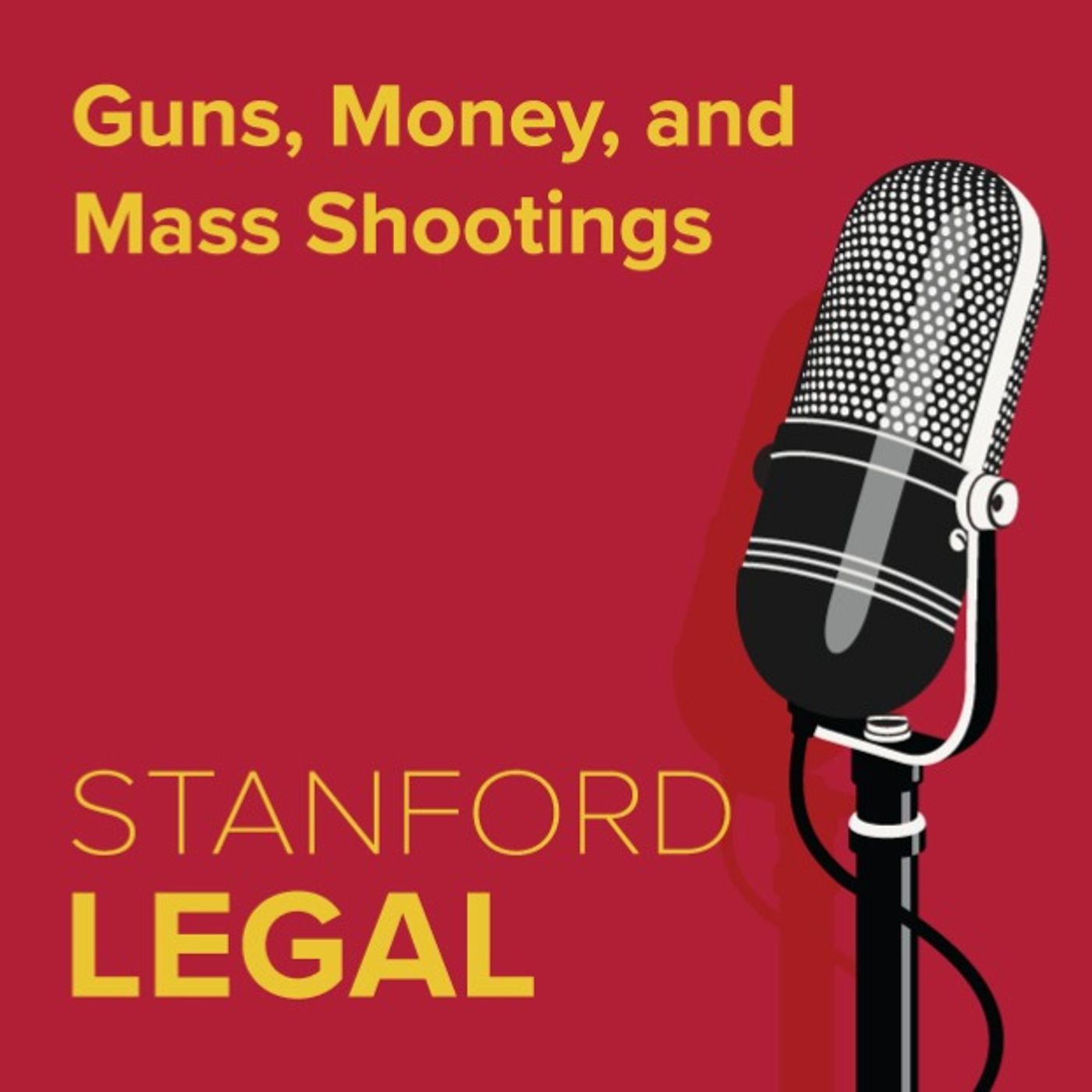
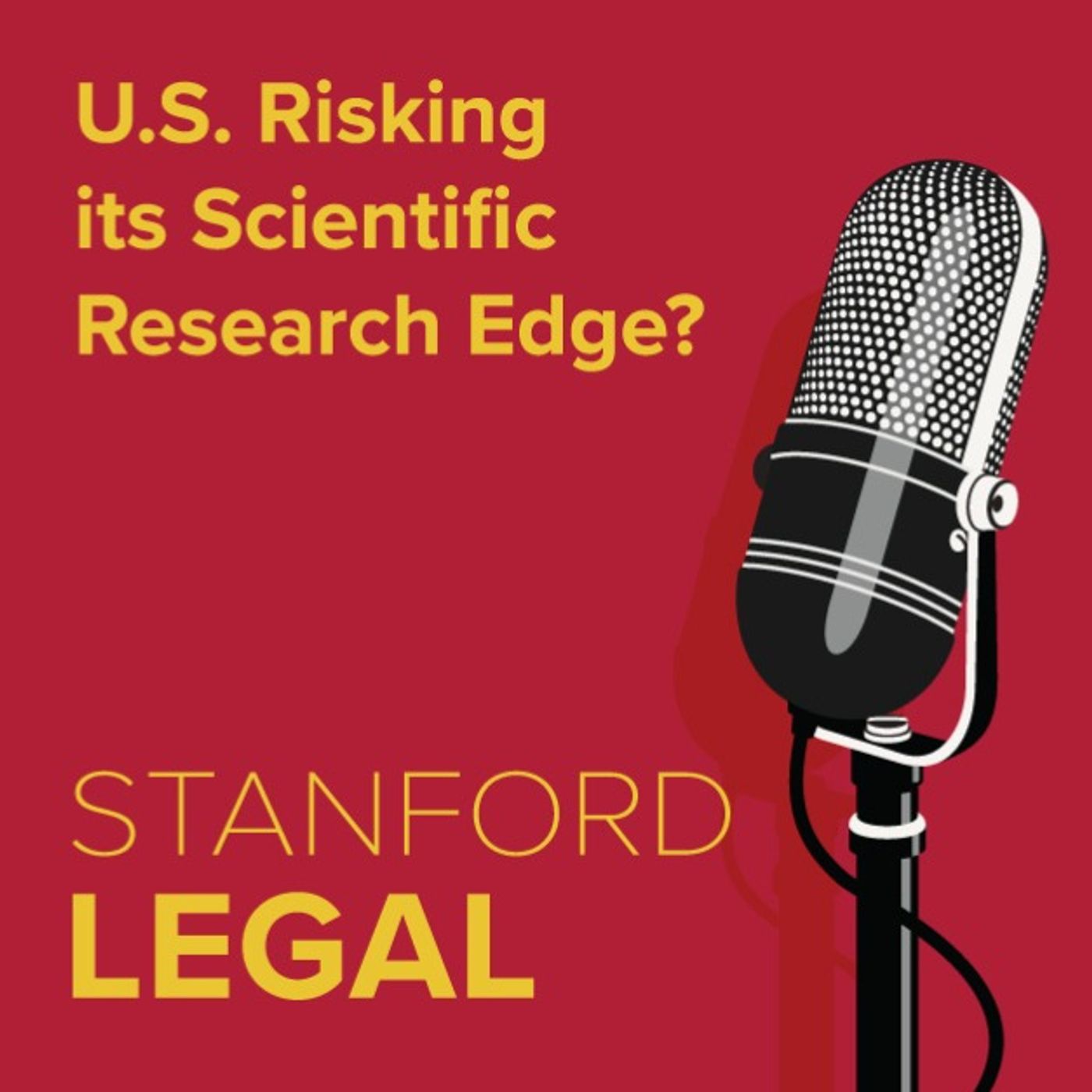
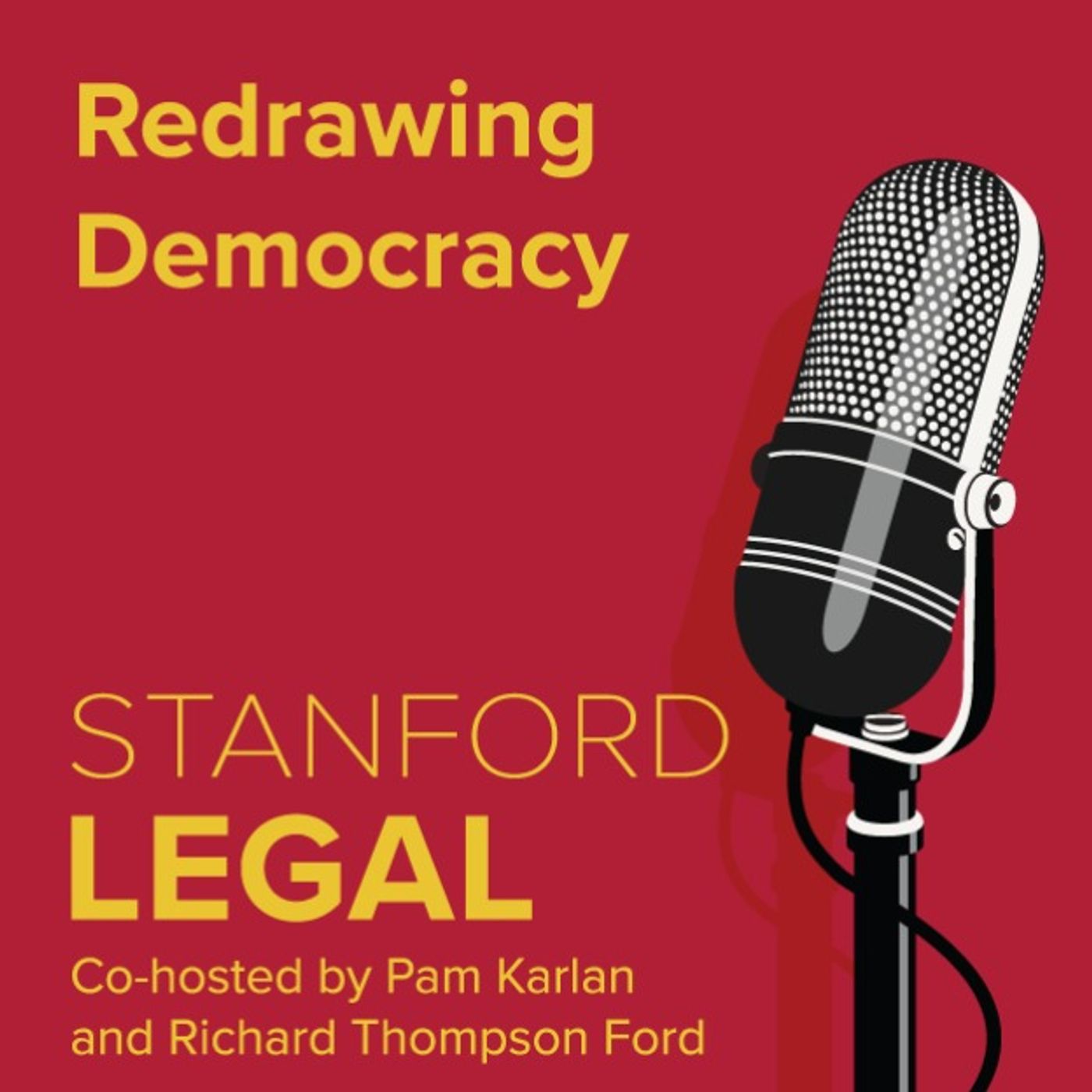
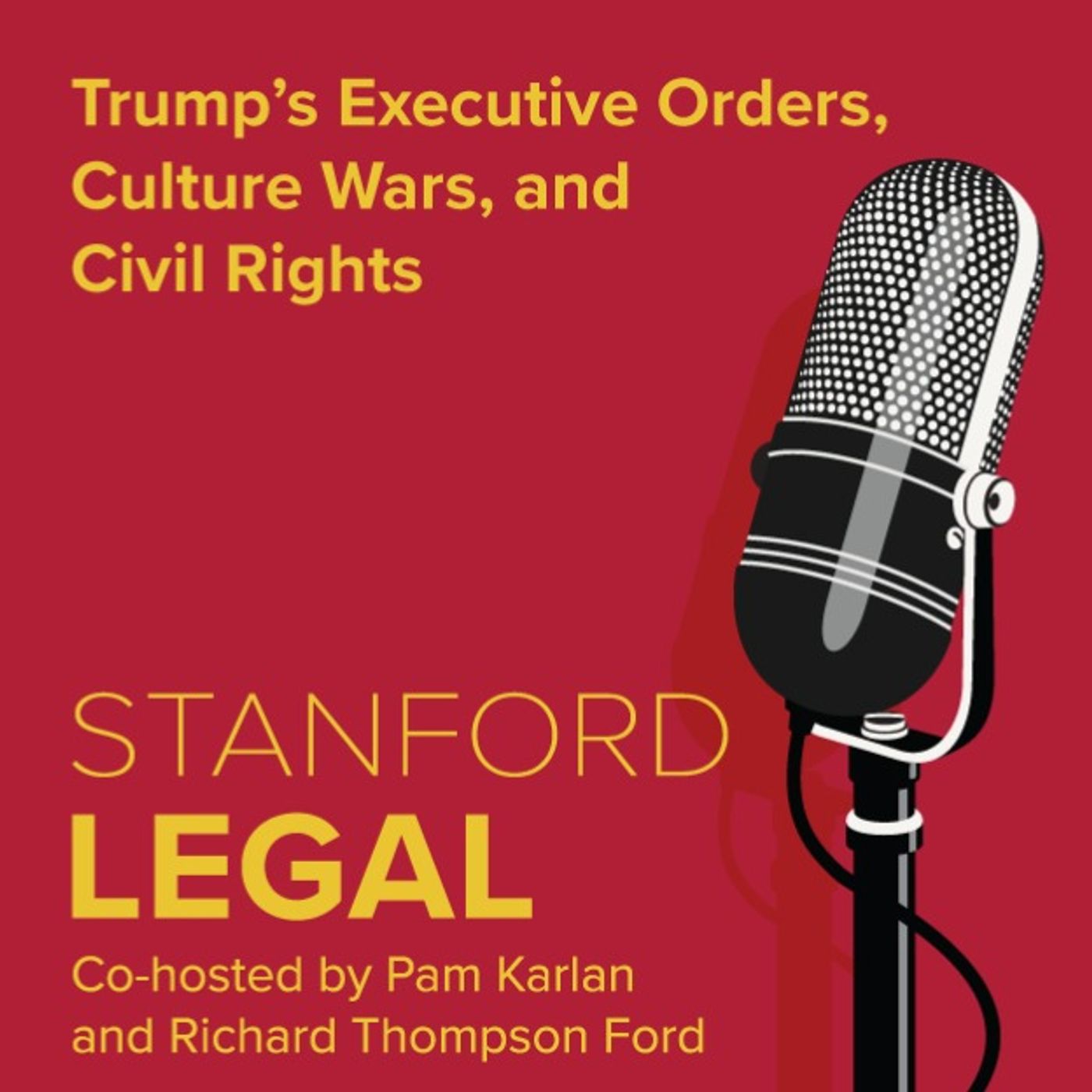
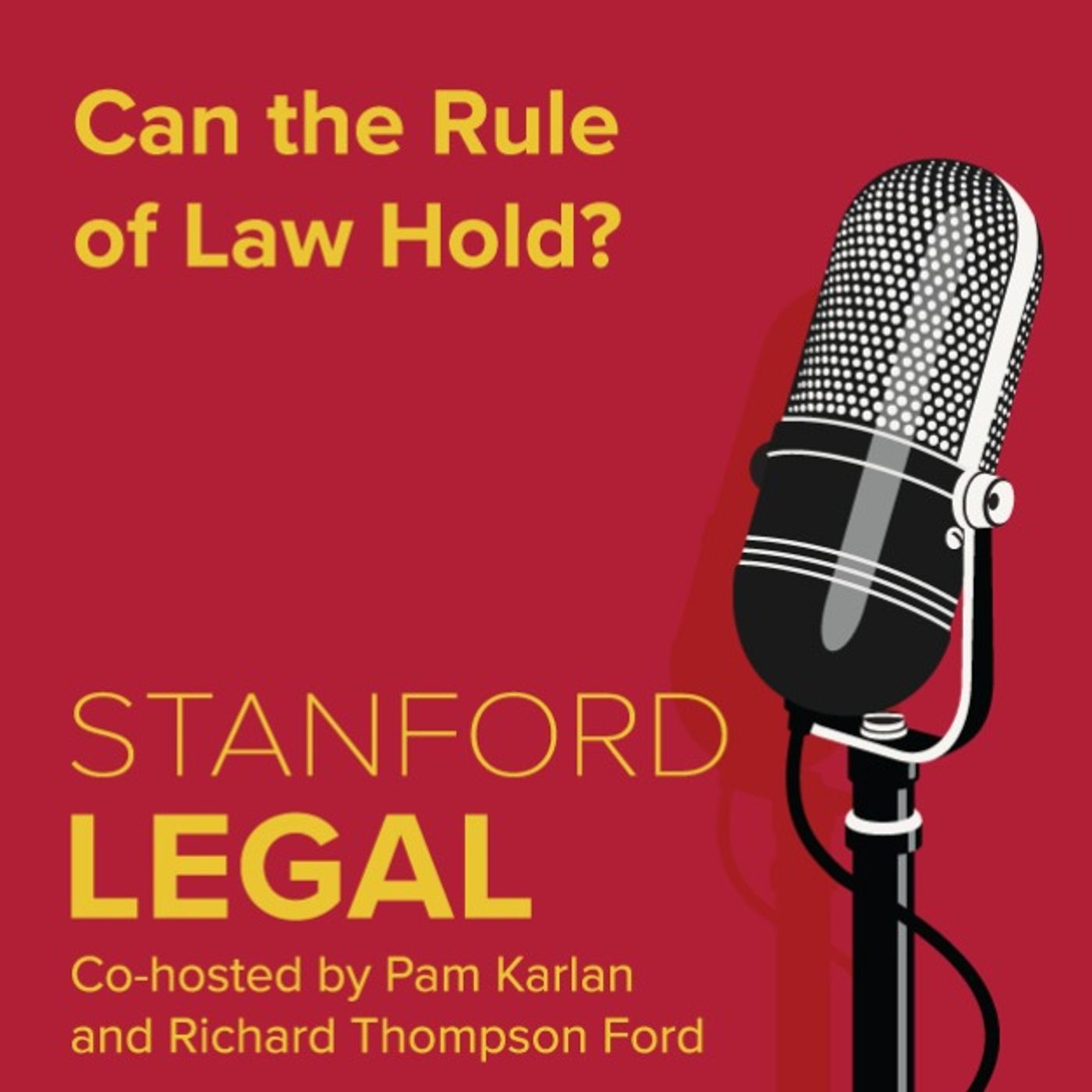




sounds quality is poor!
I find it interesting in "the sharing economy", where the discussion centers around UBER and if they are liable for their drivers actions, that there was never a comparison drawn between UBER drivers and taxi drivers. The guest did a great job explaining (briefly) how taxi drivers would be defined as an employee... but the show seems to go to great lengths to never make the direct comparison. They even bring in a tort law professor as an expert that also never mentions taxi cab drivers, and I'm sure they have several tort cases they could use as examples to draw the parallels to help distinguish the difference (contractors vs employees). Am I the only one who finds this to be odd, or seemingly intentional?